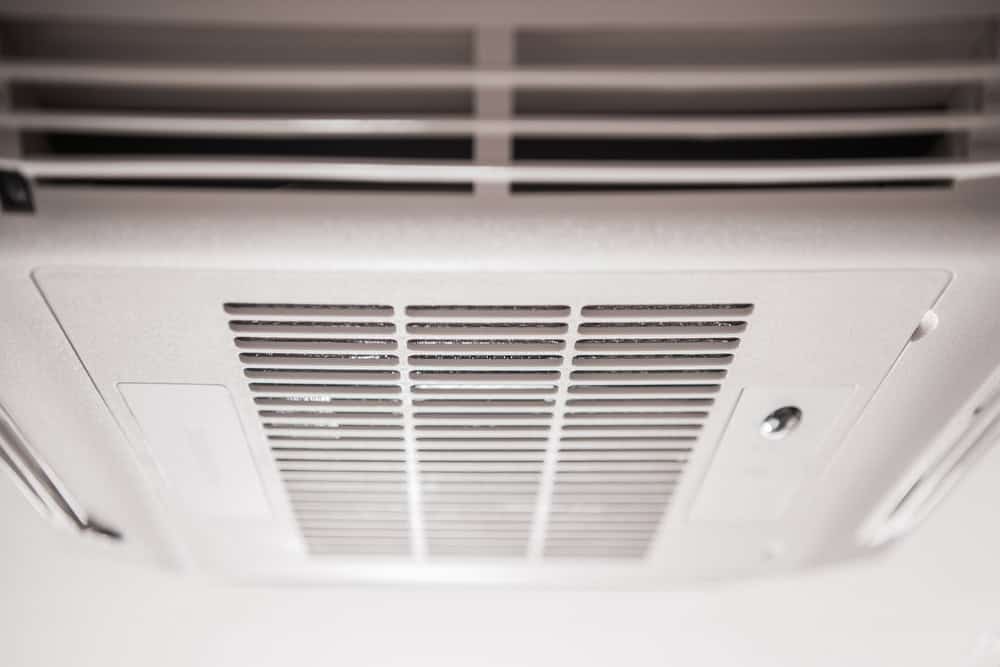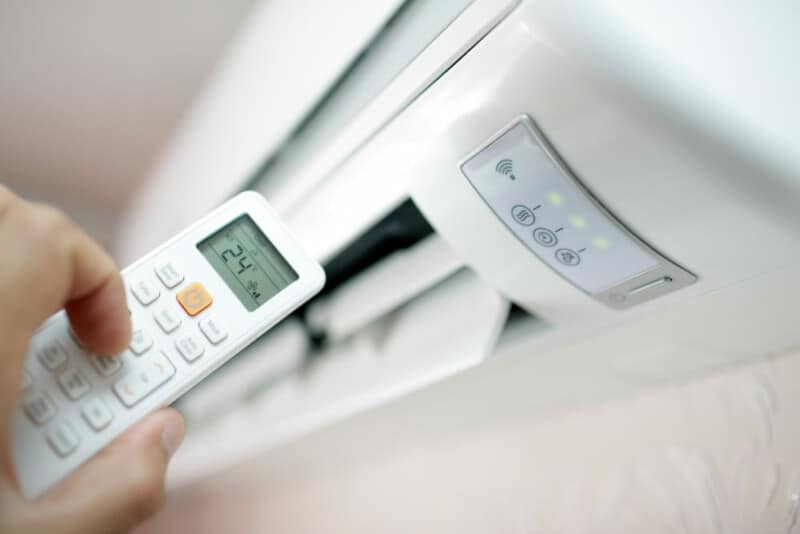Selecting the right size air conditioner is crucial when maintaining a comfortable home environment. An air conditioner that is too small will need to be bigger to cool your space effectively, while one that is too large will cycle on and off too frequently, leading to inefficient energy use and higher utility bills. Understanding what size air conditioner I need is essential for achieving optimal performance and energy efficiency. This guide aims to provide you with a step-by-step approach to calculating the appropriate size AC unit for your home, ensuring you make an informed decision.
The process of determining what size AC unit do I need involves several key factors, including the square footage of the area you want to cool, the climate you live in, the number of windows in the space, and the level of insulation in your home. Additionally, considering the layout of your home and any specific cooling needs of different rooms can help you choose a system that provides even and efficient cooling.
In this blog post, we will walk you through the essential steps to calculate the right size air conditioner for your home. We will cover how to measure your space, account for various factors that influence cooling needs, and use these calculations to determine the best unit for your specific situation. By following this guide, you will gain the knowledge needed to confidently answer the question, what size air conditioner do I need, ensuring you select the perfect AC unit to keep your home cool and comfortable all summer long.
Calculating the Right Size: What Size Air Conditioner Do I Need?
Choosing the right size air conditioner is crucial for maintaining comfort and energy efficiency in your home. The primary factors to consider when sizing an air conditioner are the square footage of the space, ceiling height, and insulation quality. These elements determine the amount of cooling power needed to effectively cool your space.
The cooling capacity of air conditioners is measured in British Thermal Units (BTUs). BTUs indicate the amount of heat an air conditioner can remove from a room per hour. The higher the BTU rating, the more powerful the air conditioner. However, bigger isn’t always better. An oversized unit will cycle on and off too frequently, reducing efficiency and increasing energy costs. Conversely, an undersized unit will struggle to cool the space adequately.
To begin, calculate the square footage of the room by multiplying the length by the width. For example, a room that is 10 feet by 12 feet has 120 square feet. Next, consider the ceiling height. Standard ceiling heights are usually around 8 feet. If your ceilings are higher, you will need more BTUs to account for the additional air volume.
Determining What Size AC Unit Do You Need
When it comes to keeping your home cool and comfortable, choosing the right size air conditioning unit is crucial. An improperly sized unit can lead to inefficiencies, higher energy bills, and inadequate cooling. Understanding what size air conditioner do I need is essential for ensuring optimal performance and energy efficiency in your home. This guide will walk you through the factors to consider and the steps to take when calculating the appropriate size for your air conditioning unit.
Step 1: Calculate the Square Footage
The first step in determining what size AC unit do I need is to measure the square footage of the space you want to cool. Measure the length and width of each room and multiply these numbers to get the area. For irregularly shaped rooms, divide the space into smaller sections, calculate the area of each section, and then add them together.
Step 2: Consider Insulation
Insulation plays a significant role in your cooling needs. Well-insulated homes retain cool air more effectively, reducing the workload on your AC unit. Conversely, poorly insulated homes may require a more powerful unit. Check your home’s insulation in the attic, walls, and windows to assess its effectiveness.
Step 3: Account for Climate
The climate of your region affects the cooling capacity required. In hotter climates, you will need a unit with a higher BTU (British Thermal Unit) rating to handle the intense heat. Conversely, in milder climates, a lower BTU rating may suffice.
Step 4: Factor in the Number of Occupants
The number of people living in your home also impacts your cooling needs. More occupants generate more body heat, increasing the cooling demand. Add approximately 600 BTUs per additional person to your base calculation.
Step 5: Perform the Calculation
Use the following formula to estimate the BTU requirement:
Square footage x 25 = BTUs needed
For example, if your home is 1,000 square feet, you will need an AC unit with a capacity of around 25,000 BTUs. Adjust this number based on insulation quality, climate, and number of occupants.
Step 6: Utilize Online Tools
To make this process easier, you can use an AC size calculator available on various websites. These tools provide precise measurements and personalized recommendations based on your specific inputs.
Selecting a Central Air Conditioning Unit
Choosing the right size central air conditioning system for your home involves more than just calculating square footage. It’s essential to consider factors like ductwork, home layout, and total living space to ensure efficient cooling and optimal performance. Understanding what size air conditioner do I need requires a comprehensive assessment of these elements. This guide will help you navigate the key considerations when selecting a central AC unit, ensuring your home remains comfortable and energy-efficient.
Ductwork Assessment
Proper ductwork is crucial for the efficient operation of a central air conditioning system. Poorly designed or leaky ducts can lead to significant energy losses and uneven cooling. Before selecting what size AC unit do I need, have your ductwork inspected by a professional. They can identify and fix any issues, ensuring your system operates at peak efficiency.
Home Layout Considerations
The layout of your home plays a vital role in determining what size AC do I need. Homes with open floor plans may require different cooling strategies compared to those with many small, enclosed rooms. Additionally, multi-story homes often need separate units or zoning systems to ensure even cooling across all levels. Take into account how air flows through your home and whether certain areas are more difficult to cool.
Choosing the Right Size Window Air Conditioner
Selecting the right size window air conditioner is essential for maintaining comfort and efficiency in different room types. Understanding what size air conditioner do I need for each room ensures you achieve the optimal balance between cooling power and energy consumption. This guide will provide you with key factors to consider when choosing a window air conditioner, ensuring each space in your home remains comfortable and cool.
Room Size and Usage
The primary factor in determining what size AC unit do I need for a window air conditioner is the size of the room. Measure the room’s square footage by multiplying its length and width. For example, a room that is 10 feet by 12 feet has an area of 120 square feet. Use this measurement to determine the BTU (British Thermal Unit) rating needed for efficient cooling. Typically, you will need 20 BTUs per square foot of living space.
Room Usage
Consider how the room is used when deciding what size central air conditioner do I need for a window unit. Bedrooms generally need quieter units with moderate cooling power, while kitchens, which generate more heat, might require units with higher BTU ratings. Living rooms or frequently used spaces should have units capable of handling varying occupancy levels and activity. Browse ClassicABC selection of high-efficiency window units and find the perfect fit for your home.
Considerations for Other Types of AC Units
When determining what size air conditioner do I need, it’s essential to consider the various types of AC units available, such as portable air conditioners and mini-split systems. Each type has unique sizing considerations that differ from traditional window and central AC units. Understanding these differences ensures you select the best unit for your specific cooling needs and space requirements.
Portable Air Conditioners
Portable air conditioners are versatile and easy to move from room to room, making them an excellent option for temporary cooling solutions or areas where installing a window unit is not feasible. When considering what size AC unit do I need for a portable unit, it’s important to match the BTU rating to the room size, just as you would with a window unit.
Mini-Split Systems
Mini-split systems offer a flexible and efficient cooling solution for various spaces, especially those without existing ductwork. These systems consist of an outdoor compressor and one or more indoor air-handling units. Sizing for mini-split systems involves calculating the BTU requirements for each indoor unit based on the room size, usage, and layout. This method allows for precise control over individual room temperatures, making it a highly customizable option. When determining what size window air conditioner do I need for a mini-split system, consider the combined cooling capacity needed for all the zones in your home.
Maintenance and Efficiency Tips for Optimal Performance
Proper maintenance of your air conditioner is crucial to ensure it operates efficiently and lasts longer, regardless of what size air conditioner do I need. Regular upkeep helps maintain the performance of your unit, whether it’s a central AC, a mini-split system, or an AC window unit. Here are some essential maintenance tips to keep your air conditioner running at peak efficiency.
Regular Cleaning
One of the simplest yet most effective maintenance tasks is regular cleaning. Dust and debris can accumulate on the coils and fins of your air conditioner, reducing its efficiency. Clean the exterior and interior parts of your unit periodically to prevent blockages and ensure smooth airflow. For window units, remove and clean the filter monthly during peak usage seasons.
Filter Changes
Changing the air filter regularly is vital for maintaining indoor air quality and ensuring your air conditioner works efficiently. A dirty filter restricts airflow, making the unit work harder to cool your space, which can lead to higher energy bills and wear and tear. Check your air filter every month and replace it at least every three months, or more often if you have pets or allergies.
Conclusion: Ensuring Comfort with the Correct AC Size
Selecting the right air conditioner size is crucial for enhancing comfort, optimizing energy use, and prolonging the life of your unit. Understanding what size air conditioner do I need is essential to achieving these goals. With the correct information and resources, such as those provided by ClassicABC Heating & Air, you can make an informed decision that ensures your home remains a cool refuge during the heat. Choosing the right size is not just about immediate comfort; it’s also about long-term efficiency and cost savings.
The process begins with accurate calculations of your home’s cooling needs. Factors such as square footage, insulation quality, climate, and the number of occupants all play a role in determining what size AC unit do I need. By carefully assessing these elements, you can select a unit that operates efficiently and provides consistent cooling.


